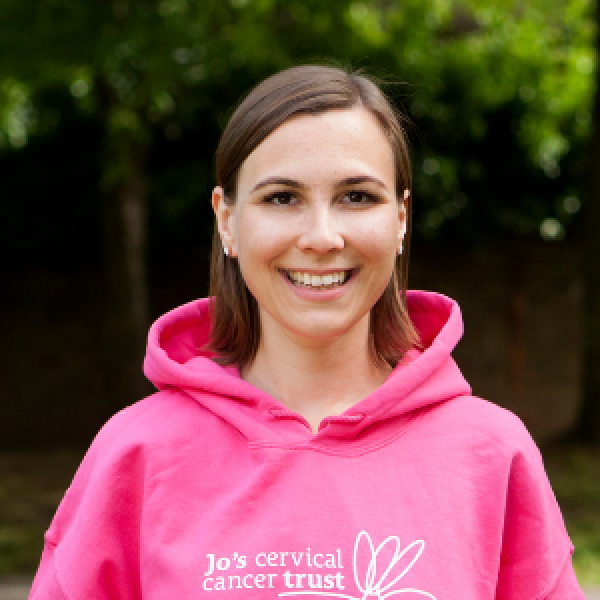Barriers to cervical screening amongst Indian, Pakistani and Bangladeshi women aged 25-64 in North Manchester
Last modified: 5 June 2025, 12:17
Every year in the UK, around 3,200 women will be diagnosed with cervical cancer. It is the most common cancer in women under 35. The NHS Cervical Screening Programme prevents 75% of cervical cancers, saving thousands of lives in the UK each year, but over the past five years, 3.7 million women have not attended. Research shows that women from Minority Ethnic and disadvantaged communities are less likely to attend.
Commissioned by Manchester Health & Care Commissioning and conducted by Jo’s Cervical Cancer Trust, this research aimed to explore barriers to, and ways to improve, the uptake of cervical screening among BAME women in north Manchester.
To undertake this research, we used both qualitative and quantitative data using three focus groups and an online survey to gather data and offer a richer and hopefully true account of some of the barriers to cervical screening in Manchester. In total 153 people took part in this research. Three focus groups were conducted with Pakistani (10), Indian (7) and Bangladeshi (10) women, and an online survey was conducted comparing the views of women from different ethnic groups across Manchester.
Key findings
The online survey data revealed that 56.1% of the respondents from ethnic minority groups delayed an invitation to screening with 15.8% delaying by more than three years. In comparision, fewer white women (34.6%) reported delaying attending. Common barriers across all groups included; they put off going, they forget the appointment and concerns about the test being painful.
The data also found a lack of knowledge about signs of cervical cancer and what a smear test is for. It highlights the need to tackle barriers such as fear of pain, embarrassment, previous bad experiences, childcare and difficulty in getting a GP appointment.
Key findings from the focus groups showed that among women who attended:
- All had heard of cervical cancer
- All knew it can be a dangerous and fatal condition
- All agreed that early detection was important
Whilst all Bangladeshi and Indian women believed that cervical cancer can be treated, 30% of Pakistani women disagreed. Despite this, Indian and Pakistani women had better levels of awareness about what cervical cancer, with none of the women in the Bangladeshi focus group aware that cervical cancer affects the cervix.
Recommendations
- GP Practice engagement to improve coverage
- Accessible services for cervical screening
- Increasing community education and engagement
- Resources and people needed to increase community engagement
- Community cancer champions
- Soft intelligence information/data sharing
Get involved
Whether it’s a run, a bike ride or a bake sale, sign up to an event or get inspiration to arrange your own!

Our information
If you or someone you know has questions about HPV, cervical screening, cell changes or cervical cancer, we can help.
